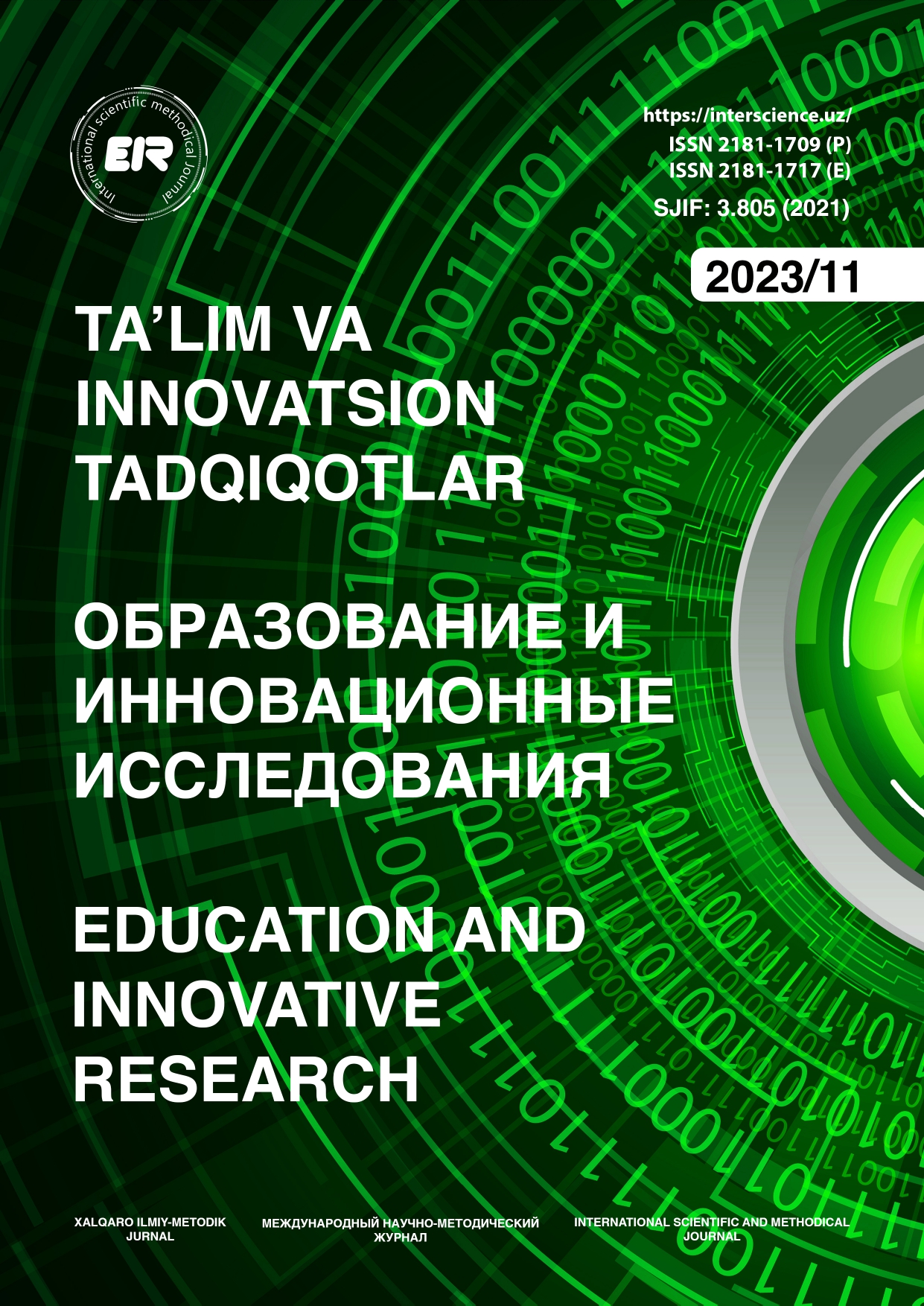ТЕОРИЯ И РАЗВИТИЕ ПОЗНАВАТЕЛЬНОГО ОБРАЗОВАНИЯ: НА ПРИМЕРЕ НЕГОСУДАРСТВЕННОГО ВЫСШЕГО ОБРАЗОВАНИЯ
Axmedov Davlatbek Saloxidin o‘g‘li University of Business and Science universiteti Pedagogika va psixologiya kafedrasi o‘qituvchisi
Ключевые слова:
познавательные способности, мышление, негосударственные вузы, мышление, развитие новых навыков.Аннотация
Когнитивные навыки способствуют мышлению, чтению и обучению, а также запоминанию, рассуждению и реагированию. Теории когнитивного развития пытаются объяснить, как человек развивается и меняется от младенчества до старости. Когнитивный контроль одновременно формирует нерутинные действия, выбирая мысли, чувства и поведение для решения задач. В этой статье мы собрали предыдущие и современные теории когнитивного развития. Результаты исследования показали, что студентам невузовского высшего образования полезно проходить курсы, связанные с их познавательными способностями, так как это способствует их позитивному развитию. Результаты исследования подтверждают, что чтение позволяет развивать новые навыки и расширять базу знаний. Мысли студентов негосударственных вузов об обучении и достижении успеха исходят из познавательного процесса.
Библиографические ссылки
Miller EK, Cohen JD. An integrative theory of prefrontal cortex function. Annual review of neuroscience. 2001;24(1):167-202
Tiego J, Testa R, Bellgrove MA, Pantelis C, Whittle S. A hierarchical model of inhibitory control. Frontiers in Psychology. 2018;9:1339
Yerys BE, Bertollo JR, Kenworthy L, Dawson G, Marco EJ, Schultz RT, et al. Brief report: Pilot study of a novel interactive digital treatment to improve cognitive control in children with autism spectrum disorder and co-occurring ADHD symptoms. Journal of Autism and Developmental Disorders. 2019;49(4):1727-1737
Best JR, Miller PH. A developmental perspective on executive function. Child development. 2010;81(6):1641-1660
Morales J, Calvo A, Bialystok E. Working memory development in monolingual and bilingual children. Journal of Experimental Child Psychology. 2013;114(2):187-202
Phillips CML, Gulley AP, Pearson YE, Smith LE, Eyler J, Noble S, et al. Solving Problems of Mathematics Accessibility with Process-driven Math: Methods and Implications. ASEE Annual Conference & Exposition Proceedings; 2018
Miller PH. Piaget’s theory: Past, present, and future. In: Goswami U, editor. The Wiley- Blackwell handbook of childhood cognitive development. Wiley Blackwell; 2011. pp. 649-672
Vygotsky LS, Cole M. Mind in Society: Development of Higher Psychological Processes. Harvard University Press; 1978
Taylor K. Diverse and critical perspectives on cognitive development theory. New Directions for Student Services. 2016;154:29-41
Kellermann TS, Bonilha L, Lin JJ, Hermann BP. Mapping the landscape of cognitive development in children with epilepsy. Cortex. 2015;66:1-8. Language Learners’ English Development. Child Development
Gascon M, Triguero-Mas M, Martínez D, Dadvand P, Forns J, Plasència A, et al. Mental health benefits of long-term exposure to residential green and blue spaces: A systematic review. International Journal of Environmental Research and Public Health. 2015;12(4):4354-4379. DOI: 10.1111/cdev.13558
Barac R, Bialystok E, Castro DC, Sanchez M. The cognitive development of young dual language Learners: A critical review. Early Child Research Quarterly. 2014;29(4):699-714
Sun H, Bornstein MH, Esposito G. The specificity principle in young dual language learners’ English development. Child Development. 2021;92(5):1752-1768
Skinner BF. Cognitive science and behaviorism. British Journal of Psychology. 1985;76(3):291-301
Pedro EdM, Leitão J, Alves H. Stakeholders’ perceptions of sustainable development of higher education institutions: An intellectual capital approach. International Journal of Sustainability in Higher Education. 2020;21(5):911-942. DOI: 10.1108/IJSHE-01-2020-0030
Zhang LF, Watkins D. Cognitive development and student approaches to learning: An investigation of Perry’s theory with Chinese and US university students. Higher Education. 2001;41(3):239-261. DOI: 10.1023/A:1004151226395
Ikromovna TO. The development of creativity in the students of higher education institutions as an urgent pedagogical problem. In: E Conference Zone. 2022. pp. 301-303
Zhoc KC, Webster BJ, King RB, Li JC, Chung TS. Higher education student engagement scale (HESES): Development and psychometric evidence. Research in Higher Education. 2019;60:219-244





